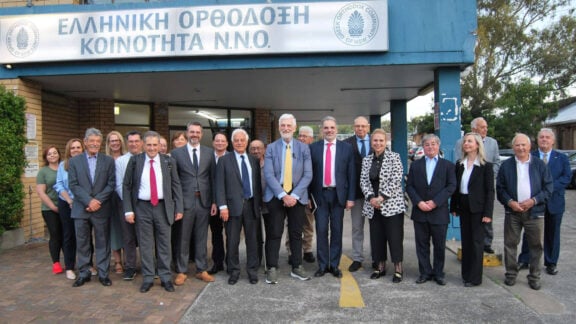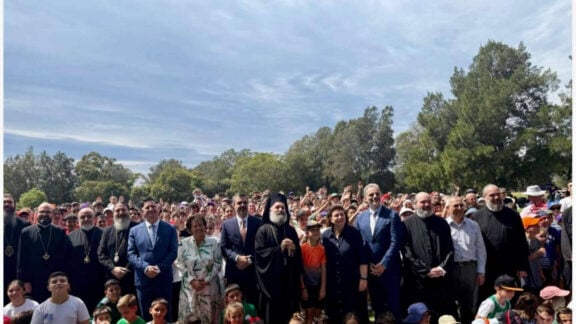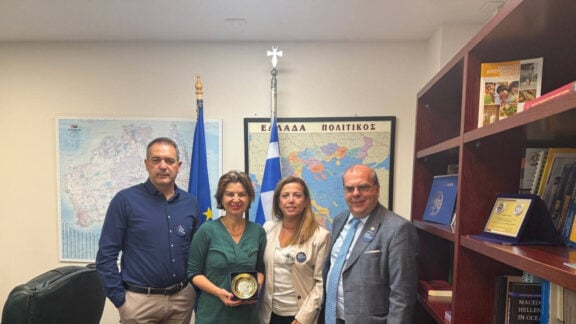The founder of ‘Women in Conflict Zones’ an organisation which focuses on women’s rights in Cyprus, has blamed the sexist, nationalistic and militaristic environment on the island for the country’s first ever serial killer.
Cyprus is in shock after Nicos Metaxas, 35, confessed to murdering seven women with that number expected to rise even further. Many in the country are also outraged after it was revealed that authorities failed to properly investigate the missing victims, believed to be five foreign women and two young girls, aged six and eight.
Anna Prodromou, a communication consultant and journalist based in Nicosia, founded ‘Women in Conflict Zones’ in 2017 and she believes the femicides are a result of toxic masculinity.
“The conditions under which these murders occurred are definitely shocking,” she told Neos Kosmos. “But what is equally shocking is the apathy and total failure of the authorities to adequately investigate these missing women’s and girls’ cases when they were initially reported as well as the stance of the government to deny any responsibility.
“Unfortunately these attitudes reflect the society in Cyprus, which is at its core a patriarchal, and among others, conservative and non-inclusive society.”
Even though Metaxas is Cyprus’ first ever serial killer, there has been a disturbing trend when it comes to violence against women in recent times. Police statistics from 2015 show that one in five women in Cyprus has been a victim of physical or/and sexual violence with the majority of cases involving physical violence (72.7 per cent), psychological violence (24.5 per cent) and sexual violence. In the past 10 years, there have been more than 30 murders of women by their partners or ex-partners and there is also an increase in rape cases and sexual assault.
‘Women in Conflict Zones’ aims is to address these alarming trends of violence and Prodromou believes that promoting a new vision of masculinity can lead to social change.
“It’s very important to move beyond the traditional definitions of masculinity, which include attributes such as independence, pride, resiliency, self-control, and physical strength,” she says.
“Because all of those attributes are related to violence and dominance exercised on others but also puts great pressure on young boys. This obsession, if I may add, for boys and men to avoid any association with any form of sensitivity because it is associated with femininity is nurturing and reinforcing homophobia and misogyny.”
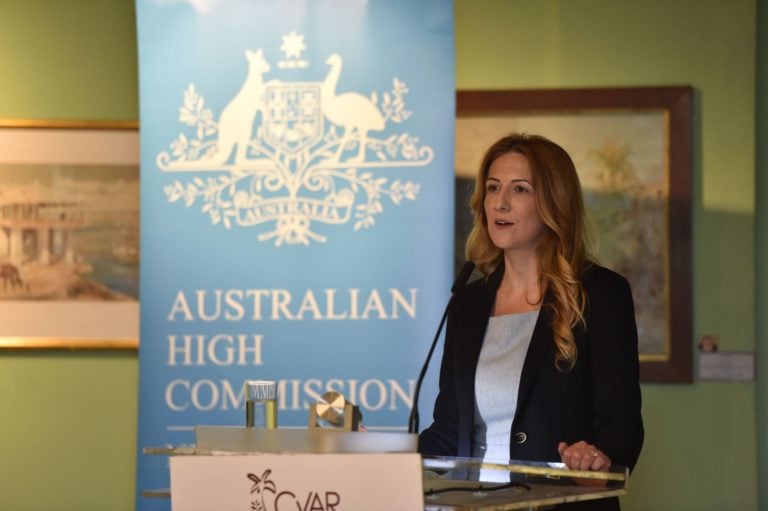
Book Launch at the Australian High Commission
Just a few weeks ago Prodromou launched ‘Women In Conflict Zones’ latest initiative – a book featuring interviews with 19 Cypriot Women from Greek, Turkish, Maronite, Armenian and Latin communities in Cyprus.
The women interviewed represent all sectors of Cypriot society including archaeologists, artists, academics, activists, MPs, journalists, writers, poets, and scientists.
The book was launched in Nicosia last month at the Centre of Visual Arts and Research under the auspices of the Australian High Commission in Cyprus, who recently have engaged in issues of gender. During his opening remarks the commissioner, Mr. Samuel Beever acknowledged how vital the inclusion of women in peacekeeping was.
“Women in Conflict Zones – Interviews of Cypriot Women naturally extends that conversation by honouring some of the many more women on this island working toward gender equality, social justice and peace,” he said.
“Their stories are a study in the intersection of identities, of inclusivity and its absence, and of activism. They also speak to the interrelationship between role models and reality”
Prodromou revealed that the name of the book and her organisation refers to the conflict that women in Cyprus face through their every day lives.
“It’s any situation where the rights of women are challenged or violated, and it’s not just restricted to situations of war, but it extends to all sectors of society,” she said. “It’s visible also in academia, in the corporate environment and in the media. I should also add that it’s not just conflict with men and women but it’s evident throughout the book that it’s about Cypriot identity as well.”
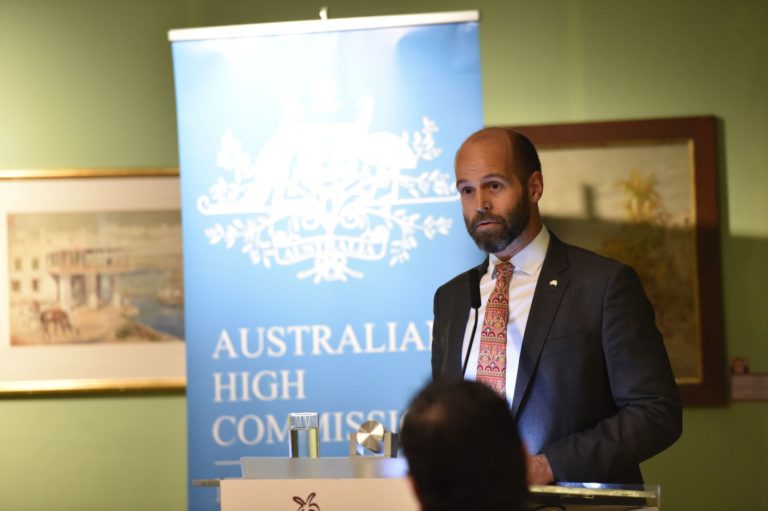
Solving and moving beyond the ‘Cyprus Problem’.
For many years a resolution to the ‘Cyprus Problem’ the name given to the situation that sees the island divided since the 1974 invasion of the north by Turkish troops has been sought, but to no avail. Many of the interviewees in ‘Women In Conflict Zones’ address this issue and offer a female perspective which during the negotiations has been conspicuous by its absence.
Prodromou points to a global study by the United Nations Security Council that showed how vital the input from women is when it comes to finding a solution to the division of the island.
“The UN Security Council adopted a resolution (S/RES/1325) on women and peace and security on 31 October 2000,” she explained.
“The importance of women’s participation as peace builders can be seen in their research. It shows that there was a 20 per cent increase in the probability of an agreement lasting more than two years and a 35 percent increase in lasting more than 15 years in peace processes that included women.”
Prodromou added, “But please have in mind that we still have no National Action Plan in Cyprus for the implementation of the UNSC 1325 resolution as a part to the peaceful solution of the Cyprus problem, which is quite disappointing.”
While the ‘Cyprus Problem’ features prominently in her book, Prodromou believes the issue has dominated the country’s political discourse to the detriment of many of the island’s other matters.
“Yes the division of the country is a huge problem and it needs to be solved and it should continue to be discussed,” she said. “But in time we shouldn’t forget about all the other problems we are facing in our everyday lives. Such as women’s place in Cypriot society.
“Women’s voices are not being heard in Cyprus as much as they should. You don’t see them in the mainstream media.”
Cyprus is currently ranked 92 in the world and 27th in the EU due to only having 18 % of women sitting in the country’s parliament (10 out of 56) and only two in the ministry.
At the local level only 10 % of women (four out of 39) hold the position of Mayor. The corporate sector is also lagging behind with women in managerial positions, only making up 22% of positions, while only 19% have roles in news media organisations
Women in Conflict Zones major focus is not just raising awareness on the lack of gender inequality in key government and business positions but also the gender pay gap which sees women earning 14% less than men.
By shedding light on these inequalities that women in Cyprus must navigate, Prodromou hopes her book, which is written in English, not only engages Cypriots but also audiences abroad.
“Hopefully this book sparks an interest in the international media about what the situation is like for women in Cyprus,” she said.
“We have an amazing number of women activists, and when I started this project it began as a passion of mine to bring social change, no matter how small that change would be. I never thought that it would end up in an initiative and eventually in a book. This book is about the amalgam of Cypriot society, where we come from and what we are made of and these narratives are so important. Through the process of meeting all these women I rediscovered the invisible threads that connect our lives. Hopefully, through this book, I can make them more visible to others.”

